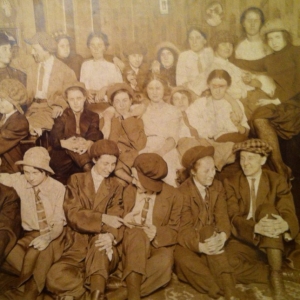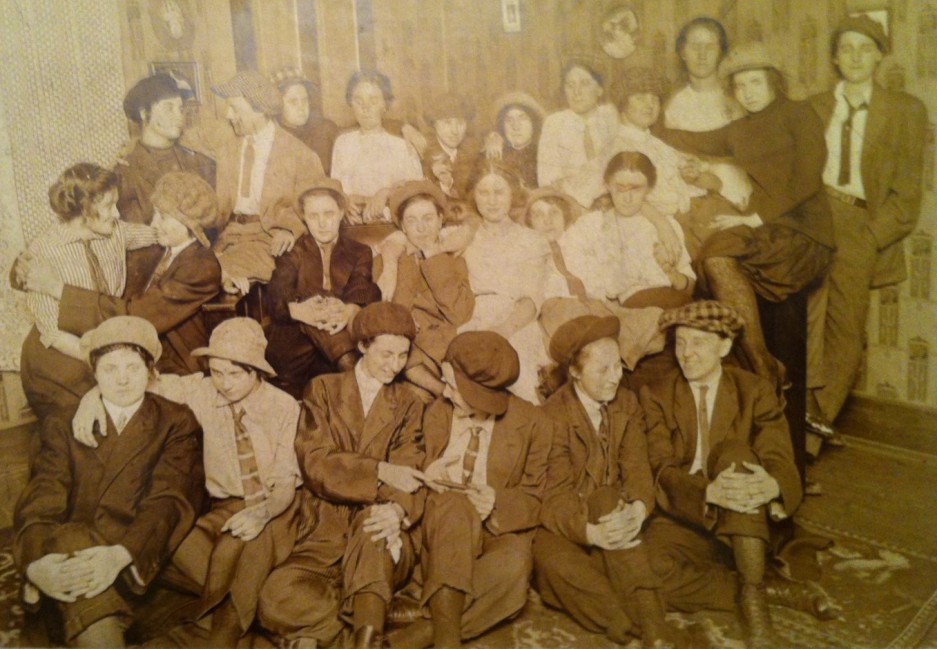In 1999, Laurie Halse Anderson’s young adult novel Speak, about a high school freshman who is raped at a party, was published. When I heard about it, my whole being rang like an alarm. I wanted so badly to read it, hungry for a sense of kinship with a character who’d endured something I believed I could relate to even though I still denied I’d ever endured something similar myself. The book’s presence flashed like a beacon, luring me nearer for a good decade before I was ready to read it. When somewhere in the midst of acknowledging my own rape, I finally did read it, emotions moved through me as if I were a wind tunnel. Speak was key to me processing emotions long atrophied, to at long last owning what had happened to me. The liberation, the relief, the unburdening that the book gave me was transformative. It’s only in retrospect that I’ve become aware of how powerfully the book affected me. As I’ve written this piece, I’ve come across other women’s stories that have served as fodder for the writing mill. But it was hearing Laurie Halse Anderson interviewed about her poetic memoir of when she was raped as a teen, Shout, that crystalized for me why I wrote this piece. It is because each woman’s story has offered a dose of healing, recovery, and strengthening. One by one, those stories—and the courage it took to tell them—have built me up. This has led, inevitably, to the ultimate balm for secrets: disclosure. But the power in this case isn’t in writing it down alone; it’s in the sharing.
I’m putting this out there for the women—for anyone, really—who might benefit from it as I have and continue to do so from other people’s accounts of their violations. For anyone for whom it might crack the ice floe of denial or secrecy, or provide even a wave of comfort, or spark recognition that they are not alone, not only in what happened to them, but in how they coped with it, even if it meant turning away from the facts until such time they could face them.
I turned away from the fact that I was raped because turning away from distressing events and emotions was what my family taught me by example as I was growing up. They gave me no skills to handle either harsh realities or strong, uncomfortable emotions. My family didn’t teach me those skills not because they did not love me or want the best for me—they did—but because they did not have such to give, much less to apply in their own lives. I believe this legacy goes back at least a couple of generations on both my mother’s and father’s sides of my family, possibly because of overwhelming circumstances that tapped my ancestors’ abilities to cope. And our tight-lipped Midwestern German-Catholic heritage, defined in part by its discomfort with feeling or expressing emotions and characterized by making nice, did not help matters in the Feel Your Feelings/Face Reality Department. Spoon on a few dollops of dysfunction and nobody but nobody is going to dare feel a thing. In any case, I would have handled the aftermath of my rape much differently—more healthfully—if I had been brought up to in a way that equipped me to face the full range of experiences and emotions.
I struggled for weeks to wrap up this piece. I’ve felt self-conscious that the whole shebang would end up a mere exercise in narcissistic navel-gazing. That says less about this essay than it does my upbringing, rape culture, and our culture at large, wherein the subtext often is, don’t make waves, don’t draw attention to yourself, don’t talk about the awful things that have happened or about your feelings—better yet, don’t even let on that you have feelings. Just smile and be polite. Agreeable. Passive. Yielding. Roll onto your back, wag your tail, and submit. This modus operandi is not uncommon in families who experience a greater than average amount of trauma and dysfunction; it plays a dual, perpetuating role as both chicken and egg.
When I was growing up, big bad things happened, and immediately afterward, evidence of the big bad things in the form of acknowledgement of them vanished with barely a word— a few terse whispers in the next room, at most. Not surprisingly, that was exactly the tack I took when I was raped and again when my rapist confessed—I disappeared it.
The impulse to whack down the self-focus (self-focus that is inevitable when disclosing an experience as personal as a rape) inspired a wild goose chase to distill from that trauma its grand universal themes. I tried spinning the experience as a cautionary tale from which we might all draw Important Lessons. I pressured myself to find something beyond the personal, a door prize for all readers, a way to make the sordid saga meaningful to the whole wide world. I posited links between the rape and my prolonged defensive reaction to it and Adverse Childhood Experiences (ACEs)/childhood trauma, both mine and possibly one or more of H’s that I suspect based solely on what he did to me. And I pumped my fist aplenty about the proper care and feeding of emotions. Raked the cult of toxic positivity over the coals but good. Hey, cult of toxic positivity, if your feelings are hurt, just be grateful—it could have been much worse. Smile and let it go. Good vibes only, please. Drew parallels between the underpinnings of my reaction to my rape, a long-entrenched national epidemic of shitty emotional coping skills, and just about every physical, mental, and social ill known to humankind.
OK, I’ve done a little of that here, but not as much as I might have.
Altruistic though my intentions were, any way I rewrote it, it came off as preachy, or, as my husband offered, like a public service announcement.
I still think I’m onto something. The ravings in the abandoned drafts contain nuggets worth mining and examining. Nonetheless, saving the world by serving it a heaping platter of the far-reaching sociological implications of one rape’s aftermath may be an ambition for another day, another rambling essay.
I don’t need to justify the existence of this piece. Identifying the global ramifications of my reaction to my rape is not the price of admission for this story. It’s enough on its own. And I hope it’s enough for anyone who might find solace or strength in knowing they are not alone.
In her memoir Shout, author Laurie Halse Anderson wrote the following in the poem “reminder”:
this note about anatomy
from me
to you
is for the remembering
that after you speak
after you shout
your open mouth
will breath in
the light for which
you’ve hungered
and your backbone
will unfurl until
you can dance again
to the beat
of your steadfast
heart
This is my shout.


